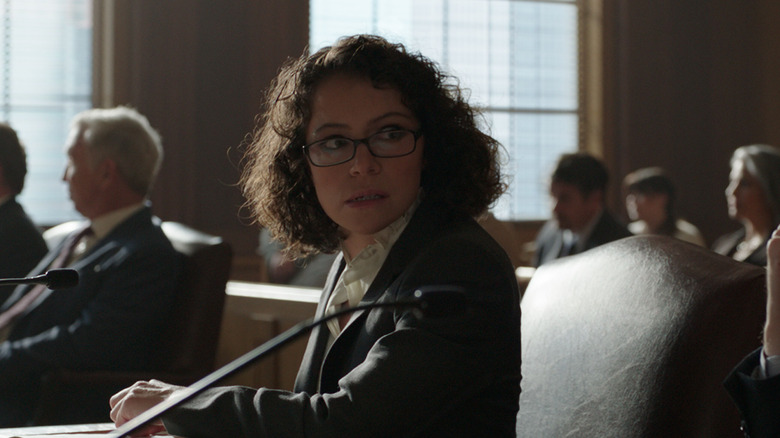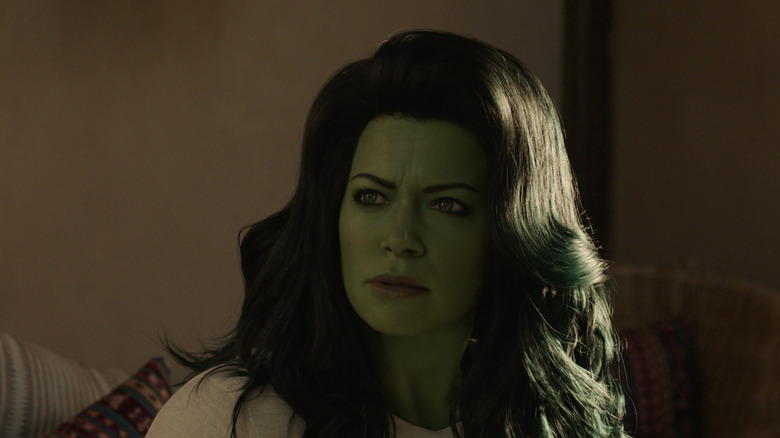She Hulk's Fourth Wall-Breaking Scenes Were Quite Intimidating For Tatiana Maslany
"She-Hulk: Attorney at Law" came out at an interesting time for the Marvel Cinematic Universe. At this point, we've got a few projects (mostly TV shows) that challenge the idea of what an MCU story should be. From "Ms. Marvel" and its slice-of-life, Disney Channel-like tone, "Moon Knight" and its more psychological focus, or even the delicious Sam Raimi horror of "Doctor Strange in the Multiverse of Madness." Now, "She-Hulk" is bringing a different element to the MCU: self-referential, meta humor.
The show's first episode did a great job of presenting the story as something familiar — a person gets superpowers by accident and trains to sort of control them — while wrapping that around something fresh via its humor. The premiere pokes fun at the idea of a world full of heroes and just how annoying it would be to gain powers when you're an adult with a life and a career.
From references to other parts of the MCU, and questions about Captain America's private life, the show is the most meta superhero story we've seen since "Deadpool." This is the secret sauce to the show, taking an already absurd premise of a Hulk with a day job, and adding a fourth-wall-breaking element to heighten the comedy.
It is part of her superpower
Speaking to Variety, star Tatiana Maslany said the fourth wall breaks were quite intimidating at first.
"It was daunting initially, because I've seen it done so many times so well by like incredibly skilled actors," Maslany said, referring to Phoebe Waller-Bridge on "Fleabag" or the movie "Ferris Bueller. Indeed, because fourth wall breaks aren't incredibly common, each time a movie or TV show features them prominently, it leaves a mark that is hard to forget. The most obvious point of comparison to "She-Hulk" is "Deadpool" for this very reason, even if the stories couldn't be more different.
"What kept me feeling like what we were doing was specific and different was just 'She-Hulk' has always been meta. The comics were incredibly meta," Maslany continued, adding:
"She's always talking to the audience or to the writer. And there's something about her awareness that maintains from her Jen form to She-Hulk, where she has this hyper awareness — it is part of her superpower — that also is now part of her connection to the audience. She's aware of the system within which she operates. She's aware of all the mechanics of it, and engages with that."
Indeed, meta-commentary is one of the key ingredients to a good "She-Hulk" story, at least since the times of John Byrne's "Sensational She-Hulk" from the late '80s. Like Deadpool, or Grant Morrison's Animal Man, Jennifer Walters is fully aware she is a character in a comic book, and she has even escaped the confines of the format on the page throughout the years, even arguing with the comic writer or the editor. At one point, "She-Hulk" almost approached this level of meta, with text boxes on the screen that would be like editor's notes, and Jennifer interacting with them.
"She-Hulk: Attorney at Law" is streaming on Disney+.

